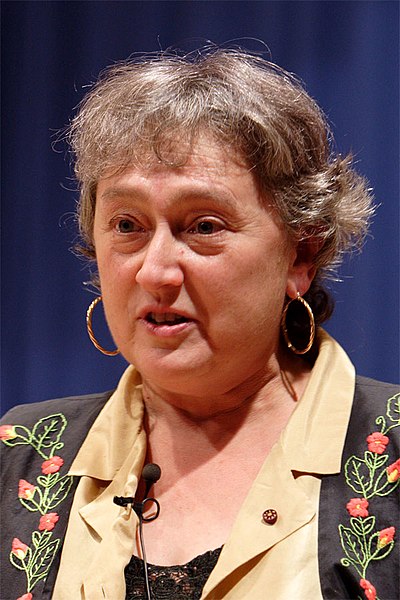
Just getting around to this here, but Margulis, like Barbara “jumping genes” McClintock, had the misfortune to actually be a woman who knew something about how life forms could change.
She pioneered the study of endosymbiosis, when life forms simply coalesce. At a time when Darwin’s followers’ circular parade of circus wagons around “natural selection” had everything surrounded.
So when anyone tries to point out that she was at best an indifferent (and quite honestly really not) a supporter of the “natural selection” theory of evolution, well …
Our Facebook commenter, on the other hand, protested the citation of Margulis as a critic of neo-Darwinism because he thought that I was concealing Margulis’s sympathy for evolution (in some sense) and that I was representing her comments as a critique of modern evolutionary theory when, in his view, they were only directed at Darwin’s version of the theory from 1859.
In fact, both claims are false. Note, first, that Margulis clearly identified “neo-Darwinism,” the modern textbook version of evolutionary theory with its reliance upon natural selection and random mutation (not classical Darwinism), as the object of her critique. As she said, “neo-Darwinists say that new species emerge when mutations occur and modify an organism…I believed it until I looked for evidence” (emphasis added). Secondly, note that in our description of Margulis, we referred to her as an “evolutionary biologist.” In addition, not only did we not make any attempt to conceal Margulis’s sympathies for evolutionary thinking, and thus her support for evolution in the first two senses of the word, but in Darwin’s Doubt I addressed six new (that is, post neo-Darwinian) theories of evolution — theories that proposed new mechanisms to either supplement or replace the reliance upon mutation and natural selection in neo-Darwinian theory. Readers may refer to Chapters 15 and 16 of Darwin’s Doubt. Those chapters reflect ample awareness of the distinction between the different meanings of “evolution” and neo-Darwinian theory, and show that many leading evolutionary theorists agree, as Margulis did, that the natural selection and random mutation mechanism lacks the creative power that neo-Darwinists have long attributed to it. More.
If either McClintock or Margulis had been Darwin’s girls, they would have been science heads at an approved high school somewhere.
Have Darwin’s own “aren’t I good?” girls have ever done anything similar? Isn’t their line more like carefully explaining to people how you can still have evidence, reason, logic—and Christianity!—while swallowing the whole bale?
Follow UD News at Twitter!